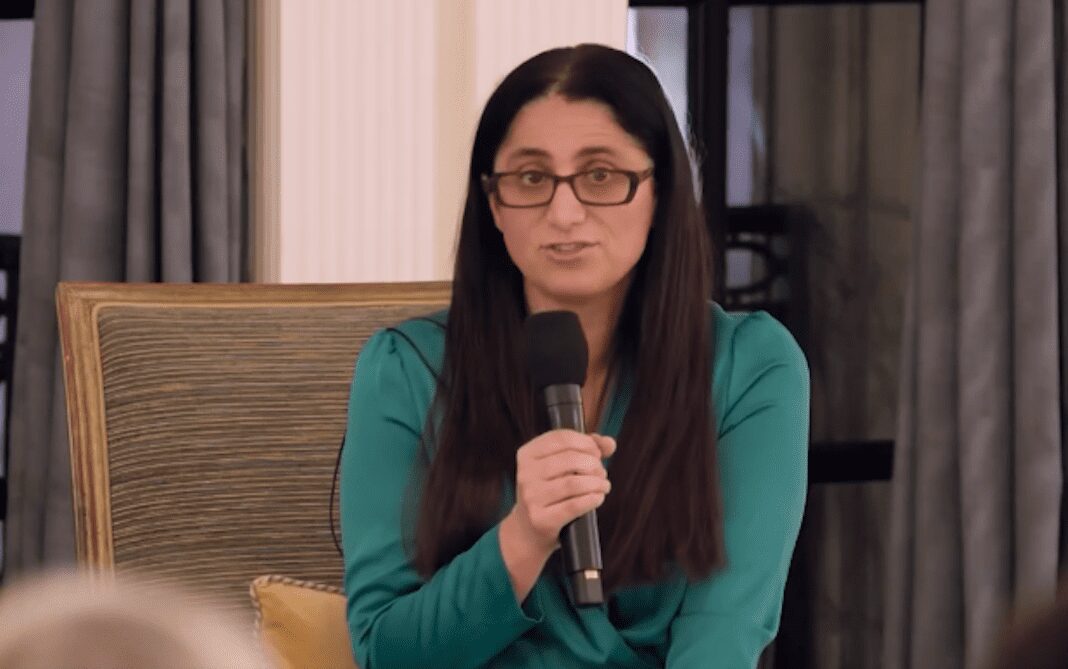Gretchen Whitmer releases plan to invest Michigan’s $3 billion budget surplus into state

Adrian Cole
The Michigan governor vetoed Republican plans for deep tax cuts and looked for alternatives to return money to the states’ residents.
Last week, after the Consensus Review Estimating Conference, Michigan Gov. Gretchen Whitmer announced that the state will have a $3 billion budget surplus for the 2022 fiscal year. She reiterated her intention to pass a budget in June that includes record spending on education, increased earned income tax credits, and a rollback of the retirement tax, among other agenda items.
In a statement posted to the governor’s website, Whitmer said:
“Thanks to hardworking people, innovative small businesses, and effective fiscal management, Michigan has $3 billion in additional revenue. In the weeks and months ahead, I look forward to working across the aisle to utilize this additional revenue, pass a budget by June 30th as required by law, and sign a fourth balanced, bipartisan state budget as soon as possible.”
Whitmer went on to say that the budget that she had proposed in February would roll back the retirement tax, which would “put an average of $1,000 back in the pockets of half a million families,” triple the earned income tax credit, invest in Michigan’s students, and provide funds for infrastructure, economic development, and workforce development.
Michigan is not alone in finding itself with a budget surplus because of surges in post-pandemic spending, increases in tax revenue, and aggressive federal pandemic relief policies.
The governor recognized, however, that Michiganders are suffering economically now, mainly through the effects of inflation on gas and food prices, and are in need of more immediate financial relief. To this end, she proposed a $500 tax rebate, called the “MI Tax Rebate Right Now,” originally floated to lawmakers in a letter. This, she claimed, would provide the average family with an extra $1,000.
The governor is at odds with the Republican state legislature over the budget and the state’s current surplus. In March, Whitmer vetoed Republican proposals to permanently cut state income taxes on the grounds that such a cut would have a detrimental effect on public services.
“While I will not support legislation that forces cuts to schools, road repairs, and public safety, I am encouraged that the House and Senate agree in principle that putting money back in the pockets of Michigan’s retirees and working families is a priority,” the governor said in the letter.
Republican state Sen. Jim Stamas, the Appropriations Committee chair, issued a press release on May 20 saying that the surplus should be returned to the people. He referenced the increased costs of food, gas, and energy, and added, “This surplus revenue is not the state’s money, it’s the people’s money — and they need it more than we need to increase state spending.”
In an interview with the American Independent Foundation, Professor Michael Greiner, assistant professor of Management at Oakland University’s School of Business Administration, said that, while Michigan’s economy is sound, generally speaking, it faces similar challenges as the rest of the country with inflation and supply-chain issues.
According to the Michigan Department of Treasury’s Economic and Review Outlook published last week, unemployment is forecast to drop to 4.4% through 2022, remain unchanged in 2023, and subsequently drop further, to 4.1% in 2024.
Michigan has experienced an above-average recovery, according to some economic indicators. Greiner said that Michigan had some unique characteristics that affected its economy. “When the rest of the country sneezes,” he said, “Michigan gets the flu.” This is largely due to the overwhelming influence of the auto industry in the state.
During the recent shortage of semiconductor chips, several Michigan auto factories had to shut down, Greiner pointed out. Supply chains were further tested this year during truck drivers’ protests at the U.S.-Canada border against vaccine mandates, which shut down the Ambassador Bridge between Detroit and Windsor, Ontario.
Noting that the governor will be facing the incumbent’s “curse of the midterm election” this November, Greiner said that in an election year it was particularly difficult to “walk the line” between being fiscally responsible and being seen to “give something back.”
“The governor’s plan,” he said, referring to the MI Tax Rebate Right Now, “seems like a pretty good approach. On the one hand, she is able to point out that she has given money back to the taxpayers, while on the other hand, she’s not committing the state to having this reduction in revenue going forward until some future time when there is an inevitable downturn in the economy.”
According to Greiner, about 40% of the state’s budget surplus originated from federal pandemic assistance — essentially one-time payments that did not amount to sustainable revenue. The rest came from increases in revenues from sales and use taxes. Since the federal money was not permanent, he said, underwriting permanent tax cuts would be fiscally irresponsible.
While there is some bipartisan support in principle for budget concerns such as infrastructure, education, and workforce investments, other areas of conflict persist between Whitmer and Republican state lawmakers. Earlier this month, the House and Senate passed spending bills that dealt with reproductive rights. House Bill 5784 would ban state funds from being used for “any elective abortion.” Additionally, HB 5783 would set aside $750 million from the “general operations reserve fund” for legal fees to potentially prosecute abortion providers.
Michigan’s 1931 abortion ban could take effect in the event that the U.S. Supreme Court overturns Roe V. Wade. Michigan Attorney General Dana Nessel has said she would not prosecute any cases brought to her based on that law.
Published with permission of The American Independent Foundation.




